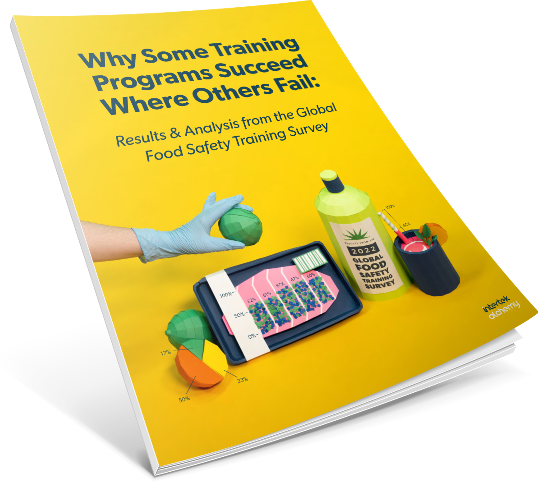

Food safety culture isn’t just for manufacturers and processors. The food service industry also needs to develop a culture that prioritizes food safety at every level, from management to front-line employees. Here’s how to get started.

Food safety culture isn’t just for manufacturers and processors. The food service industry also needs to develop a culture that prioritizes food safety at every level, from management to front-line employees. Here’s how to get started.

Roger Hancock, CEO of Recall InfoLink, discusses the importance of a fast and efficient recall, the perception of recalls by the general public and his goal to build a recall-ready community in the food industry.

Jill Stuber and Tia Glave of Catalyst on the three Ps that help build relationships and why human skills are key to building a strong food safety culture and improving employee retention.

As a member of the Alliance to Stop Foodborne Illness, Kellogg has been implementing global strategies to strengthen its food safety culture. Sherry Brice, Chief Supply Chain Officer at WK Kellogg Company, and Vanessa Coffman, Ph.D., Alliance Program Director at Stop Foodborne Illness, share their insights on training, rewards and free tools that can help food companies of all sizes enhance their food safety culture.

A strong food safety culture goes hand in hand with good business operations. By incorporating technology and re-evaluating their people and human resources strategies, restaurants can gain a competitive edge while strengthening their long-term business health.

Bad supervisors or managers are among the most common reasons people cite for leaving their jobs. Conversely, good leaders can impact employee engagement by up to 70%, which improves safety and quality, enhances productivity, and reduces absenteeism and employee turnover. This is why leadership development is crucial to organizational success.

“In 2022, the U.S. saw the largest number of norovirus outbreaks in more than 10 years. In 2023, we can expect even more norovirus infections will be circulating in our communities.”

Data analysis from more than 2,000 food industry professionals revealed challenges in employee training as well as specific actions that enable companies to have stronger food safety outcomes

In order to move successfully through a food safety crisis, it’s important to provide your team with the resources and environment to perform at their highest potential.

STOP, along with several organizations, is asking the USDA FSIS to reform and modernize poultry inspections in an effort to decrease foodborne illness as a result of Salmonella and Campylobacter contamination.